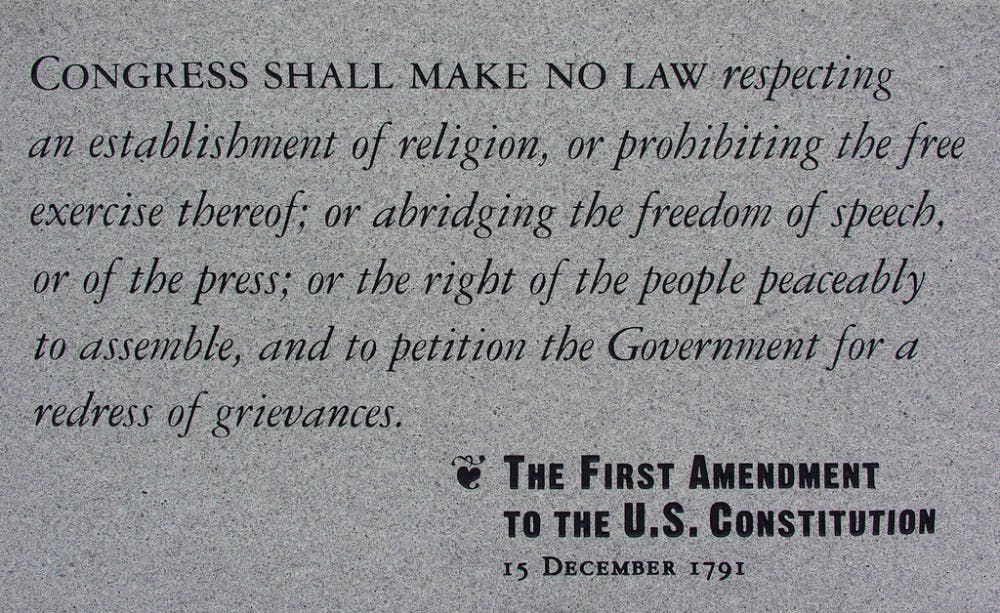No one likes to be uncomfortable. We strive to achieve maximum comfort, whether by rotating through a multitude of Princeton sweatshirts or by choosing classes purely based on the number of hours of sleep they allow for each night. Don’t get me wrong; I enjoy being comfortable, and I believe feeling comfortable on campus is a key part of enjoying the college experience. But it is important to remember that a college campus is also a place where we should be excited to have our perspectives challenged. We shouldn’t be comfortable with only seeking out safe spaces and limiting our exposure to new ideas.
We should embrace the fact that everyone has a perspective, regardless of their identity, background, or interests. While I believe Princeton facilitates an environment in which people can express individual — and sometimes controversial — opinions, I recently witnessed how a lack of open-mindedness can lead to an unnecessarily hostile environment. This was demonstrated during my first experience with a listserv debate.
The original email was a response to an advertisement of a talk by Mona Charen — a conservative author who dissects the third-wave feminism movement through a more traditional lens — sponsored by the Anscombe Society. An individual used the platform of the listserv to share their opinion that the talk was “not a feminist event,” and warned the recipients to “not be duped by the ambiguous wording that the Anscombe society [used] in its advertising campaign.” This response sparked a debate that opened the door to a theme introduced to Princeton by this year’s Pre-read: freedom to express your perspective no matter who you are.
In this particular context, a male member of the community replied with a question on whether the feminism of Mona Charen was “just a different brand of feminism, one still based in promoting the interests of women, just with a different conception of what is in the best interests of women.” The answer according to the individual who opened the debate: “If you don’t identify as a woman, I think you should take a step back and keep your opinions on what you think are the interests of women to yourself.”
I was appalled by the dismissive and disrespectful manner of the response, specifically because I had yet to witness someone at Princeton directly opposing someone’s ability to comment on a situation. Consequently, it is entirely inappropriate to devalue someone’s opinion solely because they do not fit in a particular box usually associated with that opinion. In this case: a person not being allowed to share their perspective on a “woman’s issue” just because they may not identify as a woman. You don’t know what insights that person may have on the feminist movement that could have promoted a completely new way of thinking of how to solve issues faced by women. But completely shutting down a voice before hearing it does nothing but prevent a productive conversation from happening in the first place.
While the message did not appear to be aggressive, it caused any further words to be defensive over a conversation that did not require hostility. In the end, there was no agreement to disagree; instead, there was a feeling of devalued perspectives and misunderstanding. Even though I hadn’t participated directly in the debate, I finished reading the final email feeling as if my own perspective lacked value. No one should worry that there isn’t worth in what they have to share, and although Princeton works hard to encourage inclusivity in opinions, it’s a lot easier in principle than in practice.
Thus, in a community that recognizes the importance of diversity in perspectives, it is our responsibility to recognize the value of someone else’s point of view, no matter if we agree with it or not. We are college students who are learning how to enter a world where we should expect to be challenged and changed, and one of the most important gifts free speech gives us is the ability to get comfortable with perspectives we disagree with from people we don’t expect.
As a society, we can’t pursue progress if we don’t seek out thoughts, theories, and ideas from unexpected sources. We need variety in our opinions in order to escape the echo chamber and initiate innovation, whether that leads to reaffirming our beliefs or completely changing our perspectives. We can’t create communities that are ready to serve the nation if we aren’t ready to accept that even opinions we don’t agree with not only have a place in discourse but also often lead to conclusions that better the conversation and the individuals involved. If I’m being honest, I want to be shocked by what I hear. It’s so much more interesting than being comfortable. That’s just my opinion.

Brigitte Harbers is a first-year from New York, N.Y. She can be reached at bharbers@princeton.edu.









